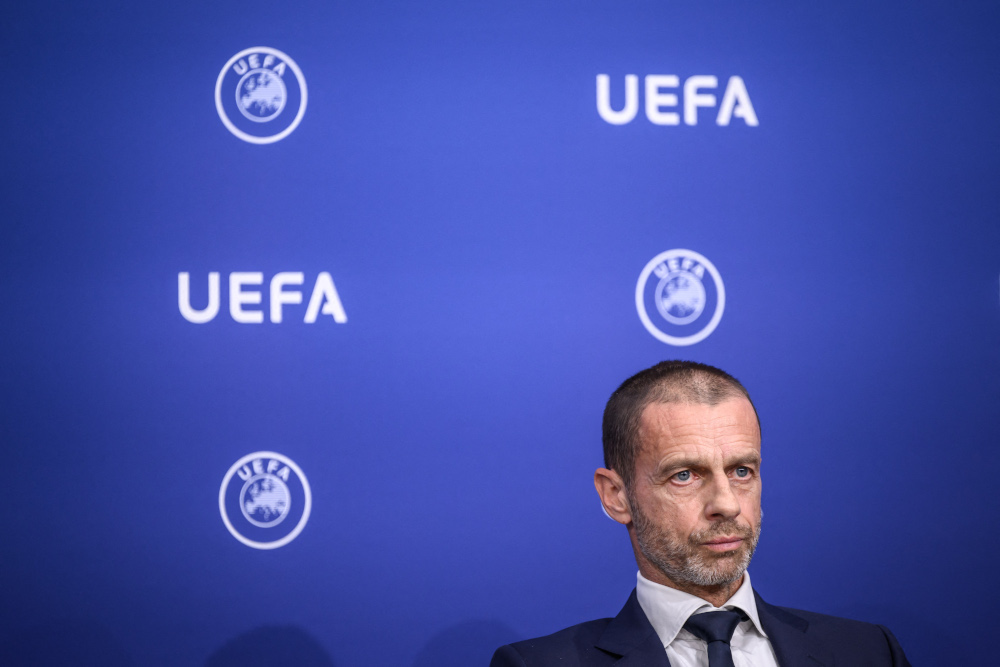Uefa President Aleksander Ceferin attends a press conference following an Uefa executive meeting April 7, 2022 in Nyon, as it is expected to adopt an overhaul of the Financial Fair Play system introduced in 2010 to stop clubs piling up debts in their pursuit of trophies. — AFP pic
NYON, April 7 — Uefa today approved new licensing regulations to replace its existing Financial Fair Play (FFP) rules, allowing European clubs to make bigger losses than before but limiting spending on wages and transfers.
As expected, European football’s governing body decided to overhaul the FFP rules that were introduced in 2010 in order to reduce spiralling debts among clubs across the continent.
FFP’s limitations had been exposed by the emergence of state-held superpowers like Manchester City and Paris Saint-Germain.
“The biggest innovation will be the introduction of a squad cost rule to bring better cost control in relation to player wages and transfer costs,” Uefa president Aleksander Ceferin announced at a press conference in Nyon, Switzerland following a meeting of the body’s executive committee.
Uefa will now allow clubs to report losses of EUR60 million (RM276 million) over three years rather than EUR30 million previously, and the permitted figure will even reach EUR90 million for a club “in good financial health”.
However, that relaxation of the rules is combined with the new ceilings on wage spending.
There was never any possibility of bringing in a specific salary cap like those used in North American sports because Uefa has 55 member countries with well over 1,000 clubs and must contend with European Union and national labour and competition laws.
Yet under Uefa’s new regulations clubs will be forced to limit spending on player and staff wages, transfers and agents fees to 70 per cent of total revenues by the 2025/26 season.
The ceiling will drop as current contracts expire: 90 per cent of club income in 2023/24, followed by 80 per cent the season after and then to 70 per cent.
“Breaches will result in predefined financial penalties and sporting measures,” said Ceferin.
Clubs who break the rules could be hit with transfer bans, loan restrictions, demotions from one European competition to another and points deductions in the Champions League. — AFP



